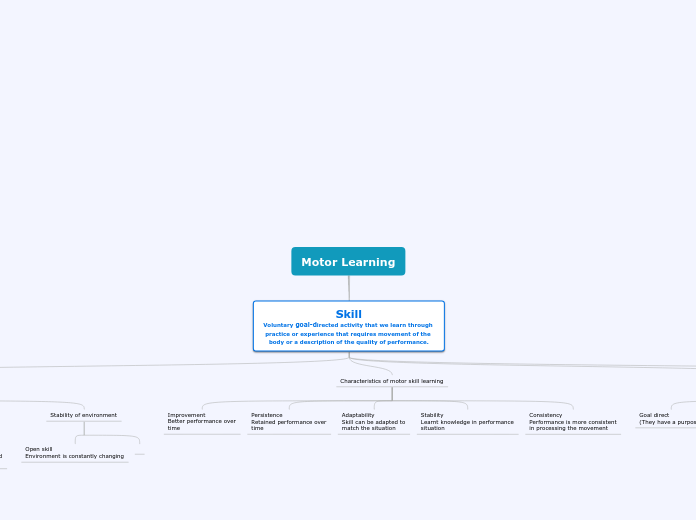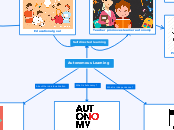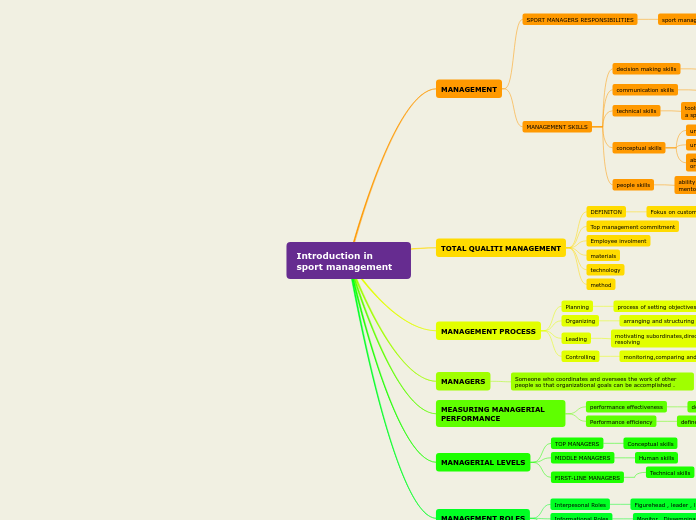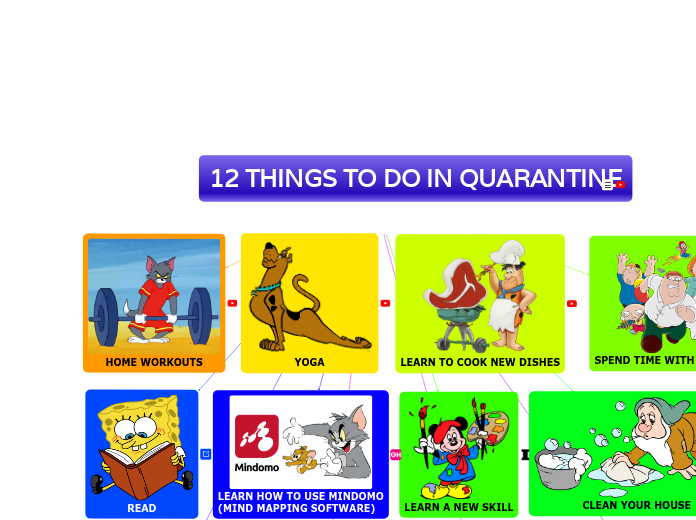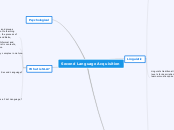Motor Learning
Skill
Voluntary goal-directed activity that we learn through practice or experience that requires movement of the body or a description of the quality of performance.
Types of motor skills
Specialised
Advanced version of fundamental
or combination of fundamental skills
we apply to a certain sport
Fundamental
Leant when young providing a basis for
the development of specialised skills
Characteristics
Voluntary
movement by individual
excluding involuntary (reflexes)
Learnt
Through practice or
experience
Body movement
required movement
of the body
Goal direct
(They have a purpose)
Characteristics of motor skill learning
Consistency
Performance is more consistent
in processing the movement
Stability
Learnt knowledge in performance
situation
Adaptability
Skill can be adapted to
match the situation
Persistence
Retained performance over
time
Improvement
Better performance over
time
Classifications
Stability of environment
Open skill
Environment is constantly changing
Organisation
Discrete skill
A skill that has a beginning and end
specific skill (hitting, throwing)
Continuous skill
A repetitive skill
(running, swimming)
Precision
Gross skill
control of large muscles in body
Fine skill
control of small muscles in body
Limitations
Difficult to classify skills in one
category as skills can be multiple
